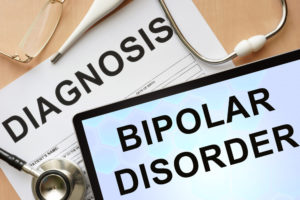 Bipolar disorder and ADHD, or attention deficit hyperactivity disorder, are two conditions that continue to be diagnosed in more individuals throughout the country, ranging from children to adults. However, diagnosing the two can be difficult as they both share several symptoms, yet they are two very distinct disorders.
Bipolar disorder and ADHD, or attention deficit hyperactivity disorder, are two conditions that continue to be diagnosed in more individuals throughout the country, ranging from children to adults. However, diagnosing the two can be difficult as they both share several symptoms, yet they are two very distinct disorders.
When a child is diagnosed with ADHD, they are more likely to develop other mental health disorders such as anxiety disorders, major depression, and bipolar disorder. This can make it extremely difficult to accurately diagnose the two conditions. ADHD is most often recognized and diagnosed at a very young age while bipolar disorder becomes more evident in the late teens to early 20’s. It is important to know the difference between the two to accurately diagnose and treat them.
What is Bipolar Disorder?
Bipolar disorder is most often characterized by the frequent mood swings it causes. Individuals who suffer from bipolar disorder experience mood swings from depressive lows to manic or hypomanic highs. These episodes can occur just a few times a year or as frequently as every couple of weeks.
To meet the criteria to diagnose the condition, manic episodes must last at least 7 days, but the duration shouldn’t matter if it requires hospitalization. Hypomanic episodes should last only 4 days.
For depressive episodes, the diagnostic criteria of lasting at least 2 weeks must be met.
Some symptoms of bipolar disorder include:
For Manic Episodes:
- Talking frequently and too fast
- Changing topics quickly
- Feelings of euphoria
- Hypersexuality
- Physical agitation
- Riskier behaviors
- Needing little to no sleep
- More energy
- Inflated self-esteem
- Distracted
For Depressive Episodes:
- Constant sad or irritable mood
- Loss of interest in enjoyable activities
- Loss of appetite
- Difficulty sleeping/oversleeping
- Loss of energy
- Feelings of fatigue, worthlessness, and inappropriate guilt
- Difficulty concentrating/focusing
- Thoughts of suicide or self-harm
What is ADHD?
ADHD is most often diagnosed during childhood with diagnoses having been made as early as 2 or 3 years old. Many seem to think that ADHD means a child is just “hyperactive” or “impulsive”, but this is not always the case. Some individuals are often plagued with inattention. Here are some symptoms of this disorder:
- Trouble focusing
- Inattention to detail
- Frequent daydreaming
- Not listening when spoken to
- Constant squirming
- Frequently distracted
- Trouble completing tasks or assignments on time
It is very important to remember that not every individual who displays these symptoms actually have ADHD. These are sometimes just common characteristics of young children. However, there are times when these symptoms should begin to raise alarms. If the symptoms begin to interfere with their daily life, then a doctor should become involved. They can become more at risk for developing learning disorders as well as other mental health disorders.
Bipolar Disorder vs ADHD
While many doctors have begun to accept the existence of childhood bipolar disorder, they still have trouble diagnosing between that and ADHD. They both share several symptoms especially during the manic or hypomanic episodes of bipolar disorders.
Some similarities include:
- Excess of energy or feeling on the go
- Easily distracted
- Frequently talking
- Trouble focusing on tasks
- Impulsiveness
There are, however, some very key differences between the two disorders that help when diagnosing them. One of the biggest differences is that bipolar disorder primarily affects the individual’s mood while ADHD affects their behavior and attention. Additionally, ADHD is a far more constant condition with the individual experiencing chronic symptoms.
Bipolar disorder is cyclical, forcing the patient to cycle through manic or hypomanic episodes to depressive episodes.
What makes diagnosing between the two so difficult is the fact that a person often suffers from both conditions. One study found that 17.6% of participants who had bipolar disorder also had adult ADHD.
The two characteristics to remember when differentiating between the two is that ADHD is a chronic condition that affects the individual’s behavior while bipolar disorder is a cyclical condition that affects their mood.
When to See a Doctor
As a parent of a young child or a young adult, it is incredibly important to be aware of the signs of either of these conditions. If you begin to recognize the symptoms of ADHD or bipolar disorder, you should speak with a doctor as soon as possible.
Because of how similar the two conditions are, they can often be misinterpreted and misdiagnosed or mistreated. Receiving the proper diagnosis and treatment can help you better live with your condition. In some instances, the individual may be diagnosed with two conditions. It is always important to stay on top of your own symptoms and wellbeing to be able to better explain them to a doctor.
Bipolar disorder and ADHD are two very common conditions for many Americans. While they share many similarities, they are two fundamentally different disorders. Due to their similarities, they can often be hard to differentiate between the two. It is important that you reach out to the trusted DFW counseling center at LifeWorks to seek the best treatment for your condition.




